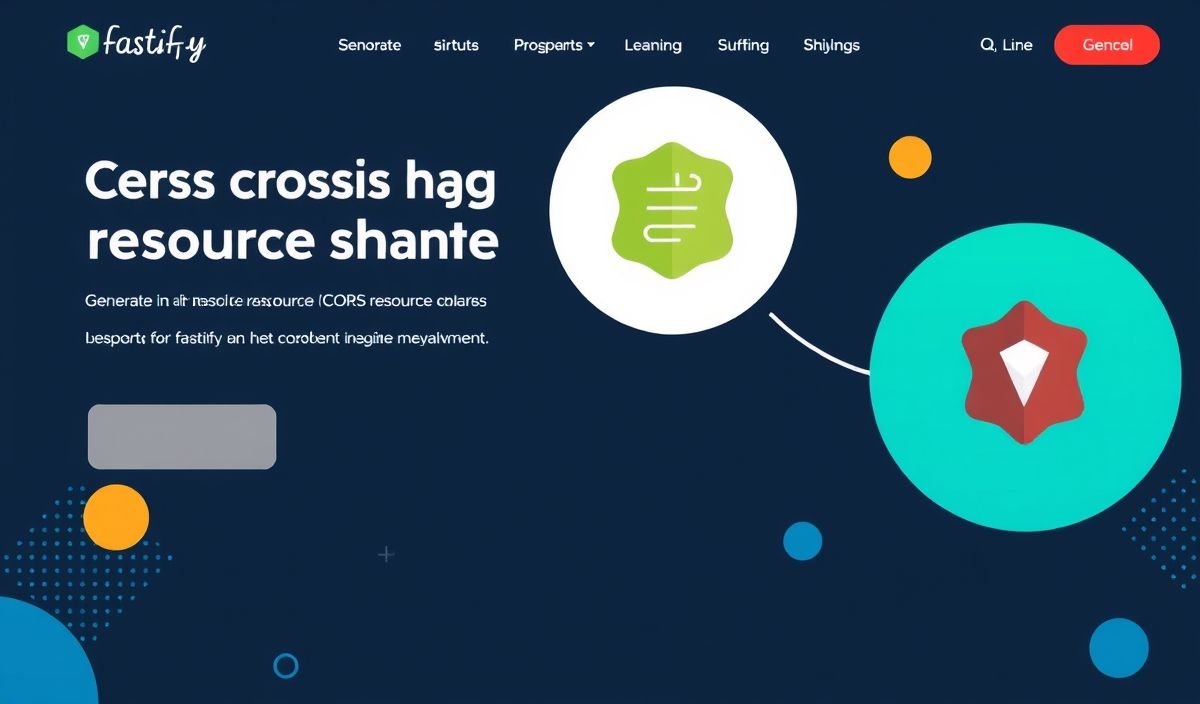Introduction to fastify-cors
Fastify-CORS is a Fastify plugin that adds Cross-Origin Resource Sharing (CORS) capabilities to your Fastify applications. CORS is essential for allowing your Fastify server to accept requests from different origins, making it a crucial feature for modern web applications.
Getting Started with fastify-cors
First, you need to install fastify-cors:
npm install fastify-cors
Once installed, you can register the plugin with your Fastify instance:
const fastify = require('fastify')();
const fastifyCors = require('fastify-cors');
fastify.register(fastifyCors, {
origin: '*'
});
fastify.get('/example', (request, reply) => {
reply.send({ msg: 'CORS is enabled for all origins!' });
});
fastify.listen(3000, err => {
if (err) {
fastify.log.error(err);
process.exit(1);
}
console.log('Server listening on http://localhost:3000');
});
API Options and Usage
The fastify-cors plugin comes with several options that allow you to customize its behavior:
origin: Configures the Access-Control-Allow-Origin header.methods: Configures the Access-Control-Allow-Methods header.allowedHeaders: Configures the Access-Control-Allow-Headers header.exposedHeaders: Configures the Access-Control-Expose-Headers header.credentials: Configures the Access-Control-Allow-Credentials header.maxAge: Configures the Access-Control-Max-Age header.
Examples Using API Options
Here are some examples demonstrating how to use these options:
Specifying Multiple Origins
fastify.register(fastifyCors, {
origin: ['https://example.com', 'https://another.com']
});
Restricting Methods
fastify.register(fastifyCors, {
methods: ['GET', 'POST']
});
Allowing Specific Headers
fastify.register(fastifyCors, {
allowedHeaders: ['Content-Type', 'Authorization']
});
Exposing Headers
fastify.register(fastifyCors, {
exposedHeaders: ['X-My-Custom-Header', 'X-Another-Custom-Header']
});
Enabling Credentials
fastify.register(fastifyCors, {
credentials: true
});
Setting Max Age
fastify.register(fastifyCors, {
maxAge: 86400
});
Complete Example Application
Here’s a complete example of a Fastify app using fastify-cors:
const fastify = require('fastify')();
const fastifyCors = require('fastify-cors');
fastify.register(fastifyCors, {
origin: 'https://example.com',
methods: ['GET', 'POST'],
allowedHeaders: ['Content-Type', 'Authorization'],
exposedHeaders: ['X-My-Custom-Header'],
credentials: true,
maxAge: 86400
});
fastify.get('/data', (request, reply) => {
reply.send({ data: 'This route supports CORS!' });
});
fastify.listen(3000, err => {
if (err) {
fastify.log.error(err);
process.exit(1);
}
console.log('Server listening on http://localhost:3000');
});
Conclusion
Fastify-CORS is a powerful plugin that makes it easy to add CORS support to your Fastify applications. By using the various configuration options, you can fine-tune how your app handles cross-origin requests, ensuring both security and functionality.
Hash: 795f560bdf59c8bac6b7716e4302969cfceeff4386a5a34178dfa21fee234b75




